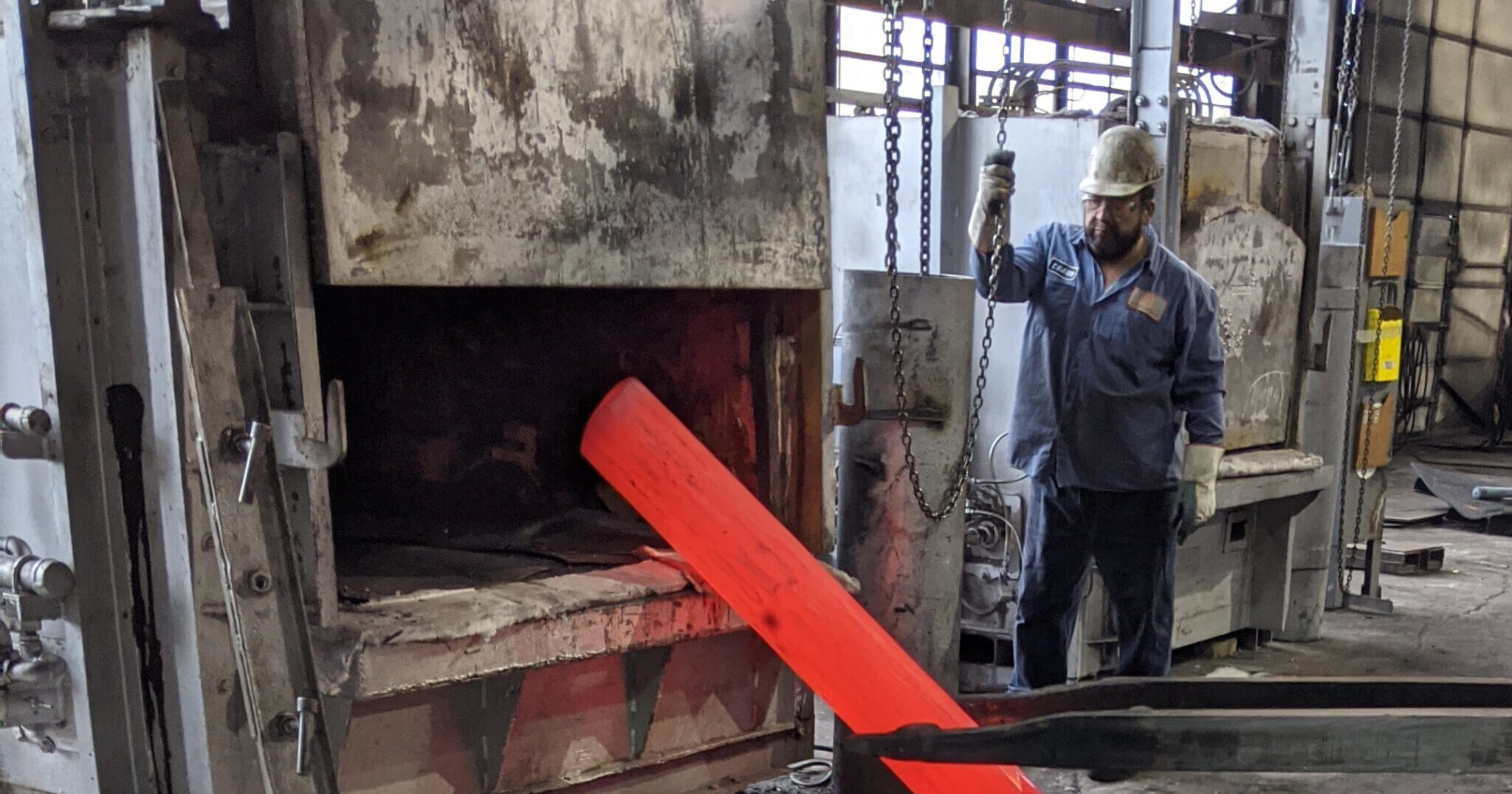Did you know that metal fatigue is one of the most dangerous types of metal failures? What makes metal fatigue challenging is that this defect can be very subtle, and even go unnoticed until it’s too late to correct. Avoiding metal fatigue is yet another reason why choosing a reliable forge shop like Anderson Shumaker is so important. Our forge masters’ experience and expertise means our clients can trust all our forged products to meet their exact specifications and most importantly, to be defect-free.
What is Metal Fatigue?
Metal fatigue occurs when a metal reaches a weakened state. This weakened state can cause cracks or failures in forging. When metal is subject to repeated stress or loading, it can cause defects if the forge shop does not take careful steps to prevent this. In general, there are 3 recognized stages of fatigue:
- First: Micro-cracks can form on the metal if it is over stressed. This can happen after a certain amount of load cycles. Oftentimes, these cracks are located at edges or near other geometric features.
- Second: These micro-cracks increase in size as the metal is stressed or during continued cyclic loading.
- Three: These micro-cracks can grow large enough to cause rapid crack propagation, which leads to metal failure. Depending on the metal’s tensile strength and its grade, these crack can have varying appearance.
Common End-Products at Risk for Metal Fatigue
While it’s important to prevent metal fatigue in all applications, there are few products that require extra attention due to their structures, forging processes, and end-use. Some examples are:
- Aerospace Parts
- Automotive Parts
- Die & Metal Stamping Equipment
- Heavy Machinery Parts
- Any Parts Subject to High Vibration
How Anderson Shumaker Prevents Metal Fatigue
With proper planning and engineering foresight, the risk of metal fatigue can be greatly lessened and avoided.
One way to avoid metal fatigue is to have all forgings created in a shop that understands all the key details about each metal grade forged. Anderson Shumaker is a material specialist. We have skilled and experienced engineers and forge masters who understand our metals and how each grade and shape will perform. For example, this key industry knowledge helps us plan each project to avoid common mistakes that can put a metal at risk for failure.
Because we are a material specialist, we can also advise on material selection for best end-product use. Different metals have different fatigue strengths. By understanding fatigue strength, we can determine which material is best suited for which application and forging process, thus avoiding metal defects and fatigue.
Another way we help prevent metal fatigue is by creating prototypes. To this end, Anderson Shumaker is a prototype specialist. These initial forgings help us test materials, shapes, and processes so we can plan larger, more effective product runs without the fear of common defects such as fatigue.
Finally, our in-house testing helps us identify any issues that might affect a product’s specifications or process requirements. This helps us prevent issues and make necessary changes before these issues become a concern.
Want to learn more about our forgings and our steps to prevent metal fatigue? Contact us at sales@andersonshumaker.com or request a quote to get your project rolling!
Need a Forge Shop Quote?
- Click Here: Request a Quote
- Contact: sales@andersonshumaker.com
- Website: https://andersonshumaker.com/







